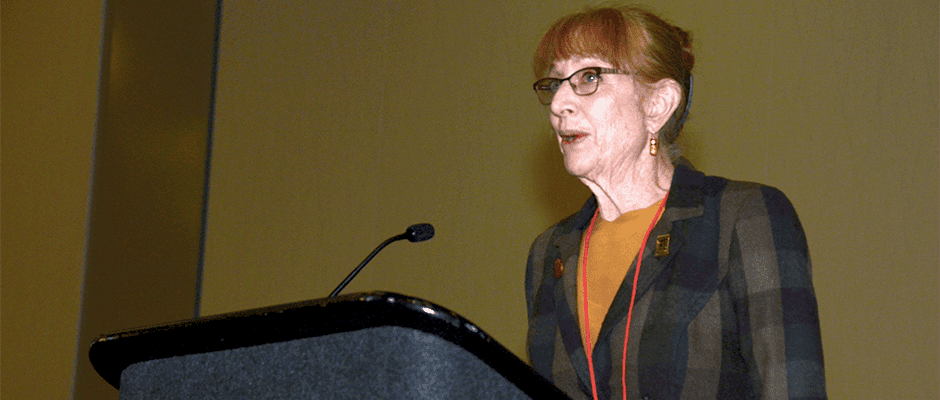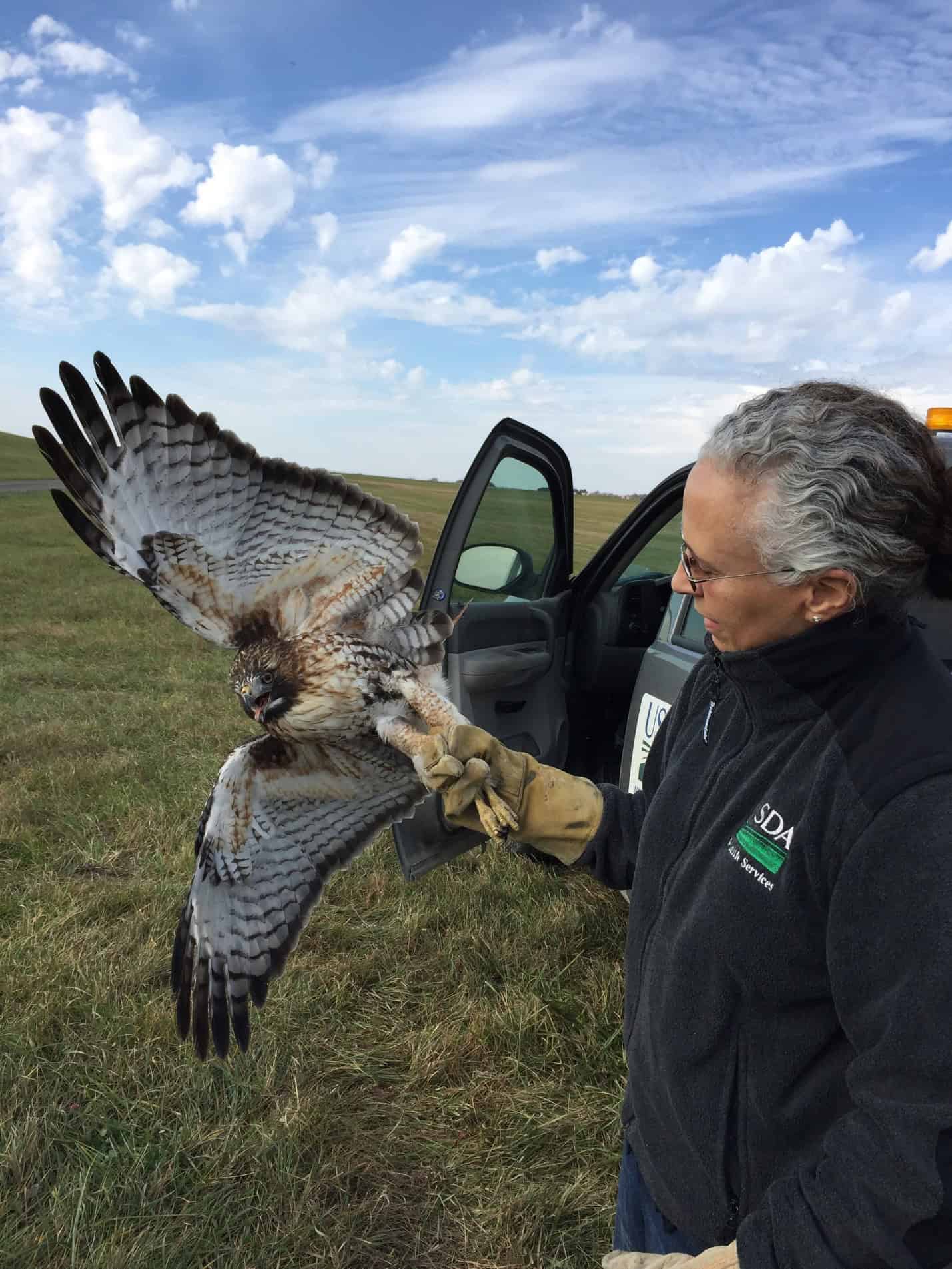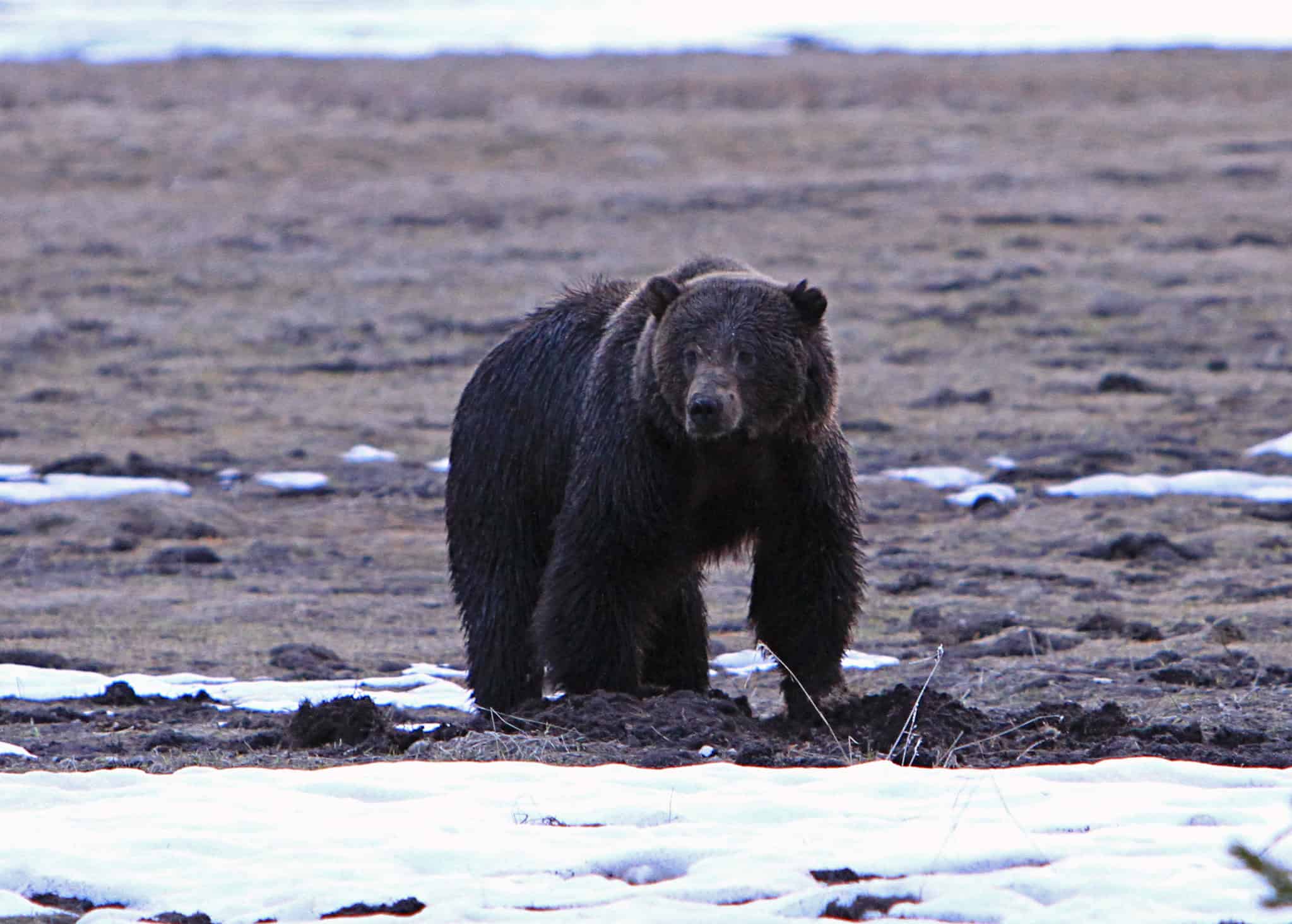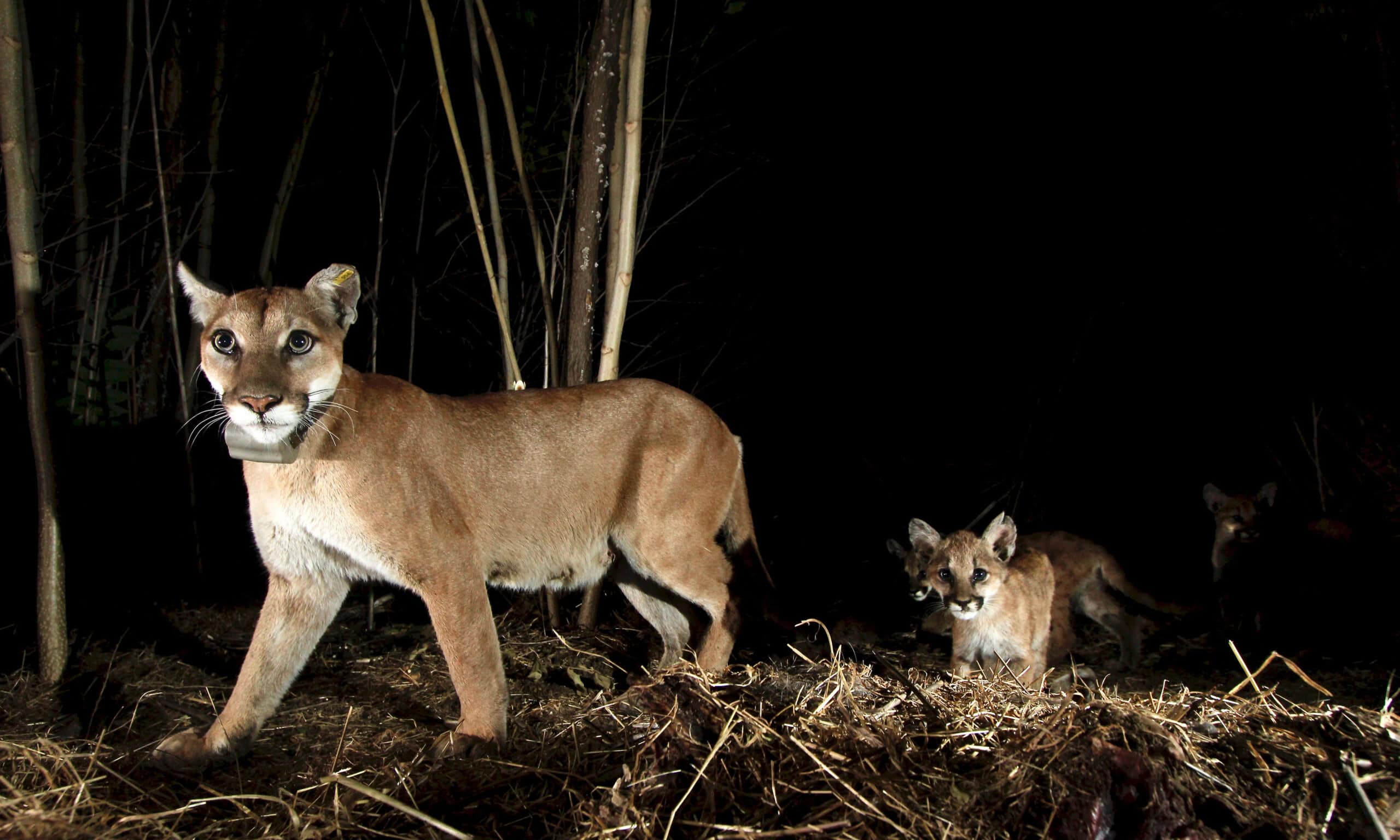Share this article
Wini Kessler: A pioneer for women in wildlife
Like Aldo Leopold, this year’s Aldo Leopold Memorial Award winner Wini Kessler finds important lessons from what seem like mundane events.
But unlike Leopold, Kessler, a member of The Wildlife Society for 45 years who served two terms on council including being president, faced the added hurdle of being a woman in the field of wildlife biology when women were not yet accepted in the profession. In fact, Kessler is only the second woman to receive the award, which is one of the most important awards in the profession.
At her Aldo Leopold keynote address, “The Gifts of the Dying Wolf and other ‘Aha’ Moments,” Kessler shared her history — starting off as a small girl spending much of her time at the San Francisco Zoo — and her career path, pointing out how essays from Leopold, the father of wildlife management, helped guide her through some of her major hurdles.
Most helpful were the “dying wolf” moments, which Kessler explains come from one of Leopold’s encounters with a wolf that he hunted. Seeing the “fierce green fire” die in the wolf’s eyes moved Leopold to think differently about predators and their management. “Aha” moments like these are important in shifting someone’s perspective, Kessler said, and she shared those moments.
The presentation was sponsored by the Boone and Crockett Club, of which Kessler is a longtime member.
She described meeting Aldo Leopold’s son, Starker, who explained to her about the wildlife management field and what she needed to do to pursue it. She began studying zoology as an undergraduate at the University of California, Berkeley. She was usually the only woman in the room. At one seminar, her first “aha” moment occurred.
“Young woman, do you belong here,” a speaker from the United Nations asked her.
“I was mortified,” she said. “I guess you can call it a deer in headlights moment. This became a dying wolf moment for me as I reflected on how close I came to ending my natural resources career right then and there.”
But Kessler persisted with the help from professors that supported her including Harold Heady who took on women as master’s students to study fire ecology and other professors that stood up for women in the field.
“Nobody — not the United Nations guy or anyone else — has the right to say who does or does not belong in natural resources,” Kessler said. She became the first woman in every position she held in her career.
Her experiences allowed her to reflect on her own preconceived notions about people, such as a fisheries biologist with cerebral palsy. “The only hard thing, it turned out, was seeing how others acting on their own biases constantly underestimated his abilities, and what I learned was that those who face the greatest challenges can often be the strongest members of the team,” she said.
She found this was also true for Chugach National Forest Supervisor Joe Meade. Meade, who was blind, was one of the “most visionary forest supervisors,” Kessler said.
“I learned that sight and vision are two very different things ,” she said, “and when it comes to supervising America’s second largest national forest, vision was what counted.”
Another dying wolf moment occurred for Kessler after she graduated and attended a talk during a conference held by the Alaska Chapter of The Wildlife Society. Someone asked a speaker how his seabird research could be applied for conservation or management, and he replied that he didn’t know and didn’t care.
“How could he not care if his publicly-funded research ever got applied for the good of wildlife and society?” she said. “As angry as I was as a biologist, he did me a real favor by stimulating deep reflection about what matters in my own career pathway, and I discovered that my real passion was for applying science problems.”
There were a few lessons Kessler wanted attendees to take away from her talk. One is to be aware of prejudices and stereotypes that some people face in the field of wildlife biology and to help stop them. The other lesson is to understand the critically important role that everyone can play in helping ignite the scientific minds of the future, she said.
“And so whether it’s your own kids, your siblings or nephews and nieces, or grandkids or neighbor kids or your friends’ kids, whoever, please get them out of doors into nature,” she said. “Get them to zoos and aquariums, naturally history museums. All the places where curiosity can be fired up and your imagination run wild.”
Leigh Fredrickson Wins Aldo Leopold This Year
This year’s Aldo Leopold Award Winner is Leigh Fredrickson, who has been instrumental in waterfowl management since 1942. He will speak at next year’s annual TWS conference in Reno.
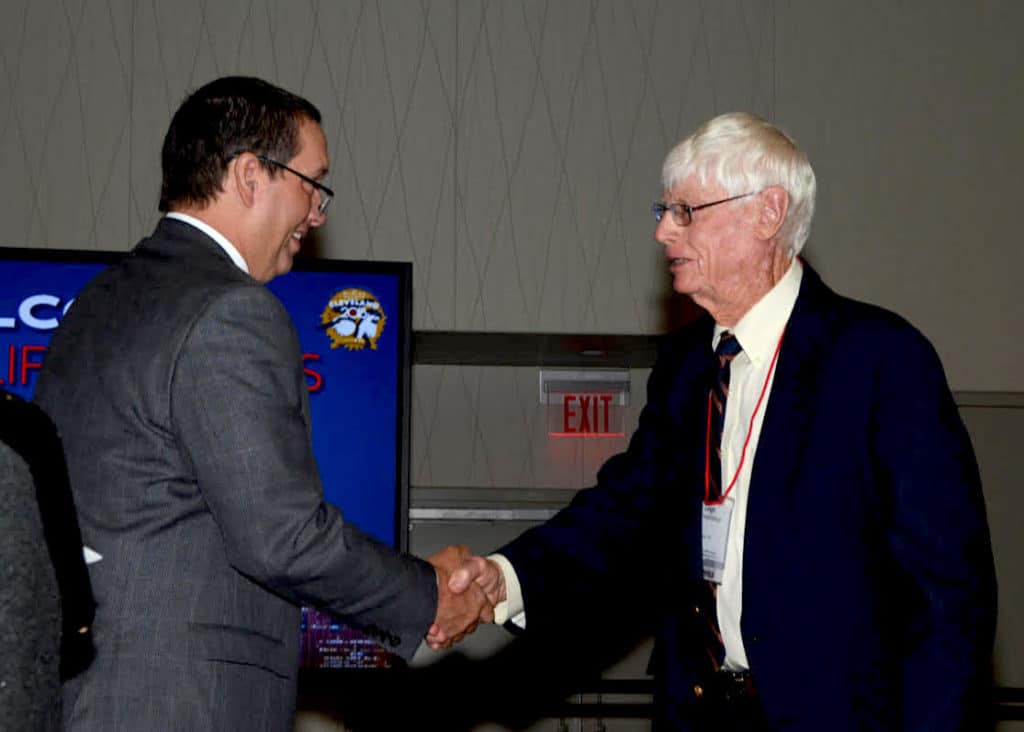
“I’ve had this wonderful opportunity to work with thousands of people over my career,” Fredrickson said. “I want to encourage you to network not only with professionals but network with nonprofessional people,” he said, whether that’s an old man in a rocking chair, a cleaning person, or someone else you may meet along the way.
Fredrickson hopes to introduce attendees to people through his address at next year’s conference in Reno.



